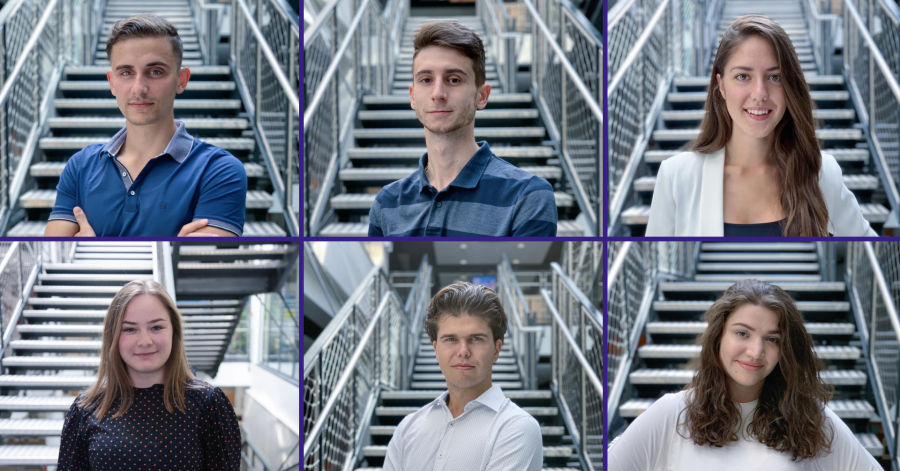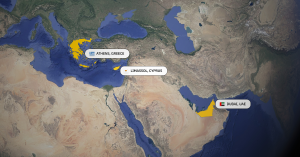We have already talked about the innovation value that university and research institutions can bring into the entrepreneurial ecosystem and about the growing proliferation of Western startup spin-off success stories. Recognizing the innovation potential of combining university with entrepreneurship, the SEE region is following the steps of the more advanced Western ecosystems and with the emergence of so many incubating and accelerating initiatives, we are asking, what is the best way to create entrepreneurs from universities? The American University in Bulgaria (AUBG) and its Elevate accelerator program that is just about to hold its virtual Demo Day during which the cohort of Season 2 startups will be seeking future investments and partnerships, might bring some insight into the conversation.
Being the first program of its kind in the Balkans, Elevate is an initiative of AUBG that is developed with the know-how of the Bulgarian early-stage Eleven Ventures and is structurally and financially supported by the university, Eleven Ventures as well as AUBG’s Provost, donors, and Alumni Association. The accelerator which was founded in 2019 and already has one successful season, is the definition of an “entrepreneurial playground” as its managing team rotates every year and consists of current AUBG students and fresh graduates. This year in the shoes of managing directors are the two AUBG alumni Alex Mishev and Stoyan Rahov who are supported in marketing, PR, and accounting endeavors by four current students – Roberta Tihomirova, Magdalena Hristova, Desislava Manova, and Kaloyan Ivanov.
Building a startup mindset in a controlled environment
Tailored to the needs and schedules of the university students, the 4-month program of Elevate aims to provide the most practical value in the shortest time and is organized according to the Lean Startup methodology. The curriculum consists of weekly scrum meetings, individual team meetings with the managing directors where feedback and further guidance are shared, motivational Founder talks in which recognizable names from the regional ecosystem share their success stories and entrepreneurial challenges, and 1:1 Mentorship sessions on various topics from idea generation and customer development to prototyping and pitching. The know-how and practical skills of the participants are further boosted with hands-on workshops on developing an MVP, business model canvas, and go-to-market strategy among others.
The accelerator gathers mentors from the network of Elevate, the faculty, and the Alumni Association of AUBG, and accepts recommendations and applications from interested professionals, investors, and founders. During Season 2, the participants were supported by more than 50 mentors among which were Rossen Ivanov, a Managing Partner at Black Peak Capital, Asparuh Koev who is the founder of Transmetrics, the co-founder of Telerik Svetozar Georgiev, and the Regional Manager of Leanplum Vladimir Rusev. The managing team of Elevate shares that it is common for teams to continue communicating and collaborating with the mentors and founders they meet during the online sessions and receive further network support in validating their ideas.
What are the terms?
The accelerator is industry agnostic and the only focus remains on the potential of the team and their motivation to work on their ideas. Rahov and Mishev highlight that the culture fit between the teams and their ideas is a crucial aspect when considering which application to accept. Throughout the program, the teams have access to up to $5K which they use for validation and prototype building, and if they iterate their business idea and register a company, they are required to give 5% equity to AUBG.
In order to get into the program, the aspiring entrepreneurs have to go through the three rounds of the admissions process – filling an application, conducting a screening with the two managing directors of the accelerator, and finally passing the selection day with representatives from Eleven Ventures, the Provost, Faculty and the Alumni Association of AUBG. From the 15th of April 2021, Elevate is going to open its applications process for the third season and will accept teams that have at least one member from their team who is currently studying or has studied in AUBG in the past 5 years.
The Uni-preneurs of Season 2
After the first season of the program which supported a total of 6 startups which included the clothing brand Melanin and the health-tech platform and app BAV, Season 2 of Elevate features 7 startups among which there are already functioning businesses with established partnerships and customers. In order to find out what problems the startups solve and how they plan to continue developing their ideas after the end of the program, The Recursive reached out to the uni-preneurs from the second cohort of Elevate.
- CreativX aims to eliminate the most time-consuming parts of the video production process and help content creators and businesses without a dedicated video department create engaging videos with the least amount of effort from their side. Their workflow is centered around the idea of creating each video custom to the needs of each brand within a short turnaround time and with the utmost quality at hand. “Elevate was a great start for our idea and some of the mentors really helped us shape our initial concept to an actual working business,” shares Rosen Dinchev. Having already established their company, the CreativX team plans to continue expanding and improving their services portfolio.
- Vendy+ develops the first vending machine for sanitary and first-aid products with the goal to break the social stigma around sex and make sanitary products such as condoms, women`s lads, and tampons more widely available. The machine which already has a prototype on the campus of AUBG provides a judgment-free way of purchasing such products, without any human interaction. According to Dimitrina Pashova, Vendy+ will focus on expanding its product variety and will try to obtain a medical license to start selling pregnancy tests. Their future plans also include installing small vending machines in public bathrooms, restaurants, and bars.
- AmeriCanGo aims to create a platform for J1 housing offers that addresses the current lack of a safe and transparent option for students to find, review and book housing options in the USA. After their participation in the Elevate program, the team hopes for a non-Covid affected summer of 2022 in order to be able to launch their platform.
- Lily’s Botanical Soapery makes natural products with a cause and during the last 4 months has developed a wide product portfolio with unique recipes. The team now plans to open a physical store where customers can interact with their products and discover the benefits of natural ingredients. Kristina Borisova notes that after the end of the program, Lily’s Botanical Soapery will focus on legalizing its products for commercial use.
- Seekingtraveller aims to help people make the most of their time when they are on holiday by giving them the opportunity to experience the local way of living away from the commercialized parts. “We are expecting an interesting and dynamic summer as our tours are going to start at the end of May in Sozopol. We are planning to expand to Nessebar in the summer and during the winter in Bansko,” shares Georgi Georgiev.
- DIGI has a goal to put people in control of their financial lives by helping them create their personal financial profiles. The app calculates the real-time net worth of its users and allows them to create a budget to track how much income they have available for spending every month and how much they can save for their future goals. DIGI plans to keep improving its technology so that the app can automate as much as possible from the lives of its users. “We want to reach the point where they can set up their accounts once and expenses such as bills, rent, even groceries scheduled to truly automate their basic living costs,” shares Plamen Kostov.
- Pate Mate aims to address the lack of healthy options when it comes to ready-to-use energy drinks and it does that by offering clean, natural, and highly functional mate infusion products at a fair price point. “We were lucky and organized enough to have turned our idea into an actual product during the span of the program and we are currently focused on logistics, distribution, and scaling up our production. We are also doing R&D into new tastes and different product lines,” notes Andreyana Andreeva.







